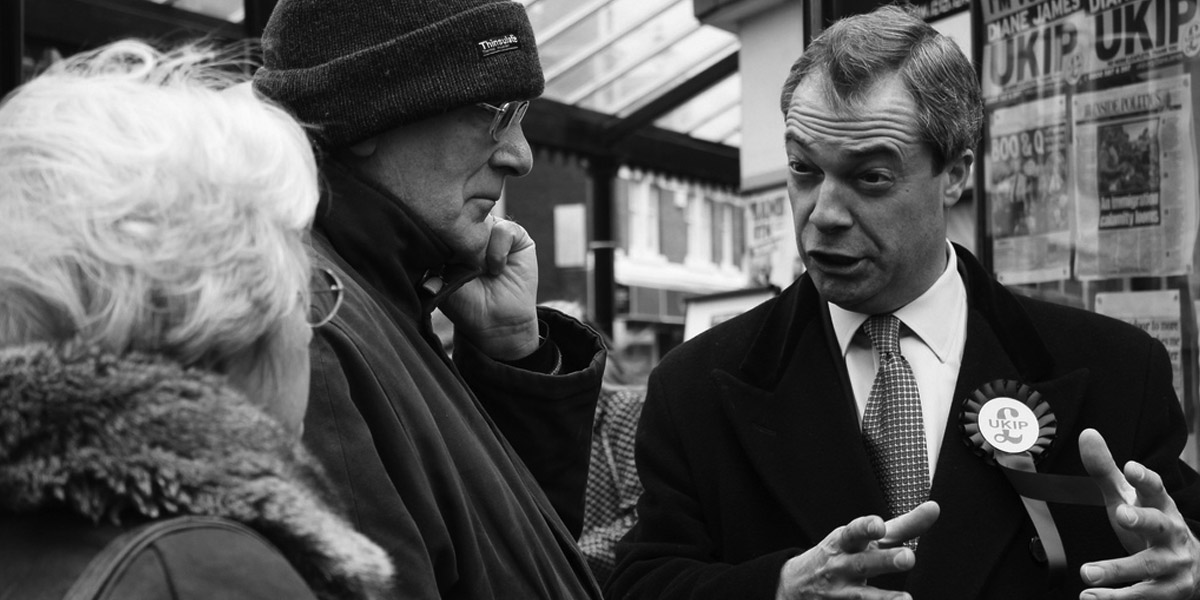The Clegg v Farage debate: Eurosceptism is an invented tradition
In their 1983 book The Invention of Tradition, Eric Hobsbawm and Terence Ranger argue that many traditions that claim to be old are “often recent in origin and sometimes invented”. Invented traditions are often used by proponents of nationalism to...
In their 1983 book The Invention of Tradition, Eric Hobsbawm and Terence Ranger argue that many traditions that claim to be old are “often recent in origin and sometimes invented”. Invented traditions are often used by proponents of nationalism to install a sense of ‘naturalness’ of their version of the past, often through the use of myths and semi-truths. They are a central component of modern nationalism, creating perceived common experiences and promoting the unified national identity through creative re-writing of history.
It is a tactic that Nigel Farage seems to have applied during last night’s LCB debate on Europe, where he shared the forum with Nick Clegg.
Some of the myths Mr Farage used were to be expected. His claim that Britain’s elected representatives had no influence over the laws made in the EU completely ignored the role MEPs and the European council fulfil. Being himself an MEP, he should really know better. Rather more shocking were his attempts to make ‘my enemies’ enemy my friend’ by claiming that the EU had blood on its hands in Ukraine and shifting responsibility away from Russia.
Throughout the entire debate, he referred to the European institutions as ‘they’, creating the notion of a vast drift between the British and ‘the others’ in Europe. UKIP’s entire worldview seems to be based on the assumption that British isolation from the European community is the ‘natural status’ to which Britain should return.
Many on the left are not innocent of this; although internationalism is very much at the heart of the Labour movement, we become uncomfortable with it when it comes to Europe. We praise ourselves for the sense of loyalty, of brotherhood and sisterhood we feel with people in the most remote corners of the world, for not letting the fight for social justice stop at national borders. And yet Europe remains a necessary but little loved feature of our political lives, something separate from our own history and identity. But this myth has also been invented out of thin air.
The post-war idea of Europe had different meanings to different people. To France and the Benelux countries, creating regional integration and economic ties with the former enemy allowed them a way to keep Germany in check. For many Germans, the EU provided an opportunity to prove to the world that they could be better global citizens.
When Britain joined the European community in 1973, it had already become much more integrated, further reaching organization. Although its main appeal for Britain was access to the single market, the idea of European integration in the form of a political and cultural union, as a force for peace and prosperity, has existed within the British public debate for centuries.
Let’s go back to London in the 16th century. In 1518, the then major European nations – England, France, the Papacy, the Holy Roman Empire, Spain, Burgundy and the Netherlands – signed the Treaty of London, a pact in which the signatories all agreed to not attack each other and come to each other’s aid if attacked. Designed by Cardinal Woolsey against the background of the rise of the Ottoman Empire, the underlying idea was that of lasting peace between the European Nations. Although the peace was very short-lived, historians see the treaty as the first attempt of achieving European integration through diplomacy. Having been initiated by the English Crown, it greatly increased Henry VII’s international standing and established England as major European power.
Fast forward 175 years, and Europe lies in shatters in the aftermath of the nine-year wars. The English philosopher William Penn, shocked by the devastation and loss of human life, in 1693 proposes a ‘European dyet, or Parliament’, to prevent further war. Though the political realities of the time did not allow for his ideas to have much impact, his ‘Essay on the present and future peace of Europe’ was one of the key publications of the era.
Skip ahead another 253 years, and Winston Churchill, often revered as one of Britain’s greatest statesmen, declares his support for a united Europe in one of the most eloquent ways this has ever been done. In his famous Zurich speech given one year after the end of the second world war, he proclaims that “if Europe were once united in the sharing of its common inheritance, there would be no limit to the happiness, to the prosperity and glory which its three or four hundred million people would enjoy…We must build a kind of United States of Europe”
Times change and the world moves on, of course. But as these episodes in British history reveal, the island mentality promoted by Eurosceptics is an entirely invented tradition. For centuries, Britain’s place in the world has been at the heart of Europe.
Labour should engage with the debate continuously, and its absence from the discussion two months before the European elections is a mistake. The lack of engagement from the leadership with last night’s debate allows Eurosceptics to claim the European issue for themselves, rewriting history.
